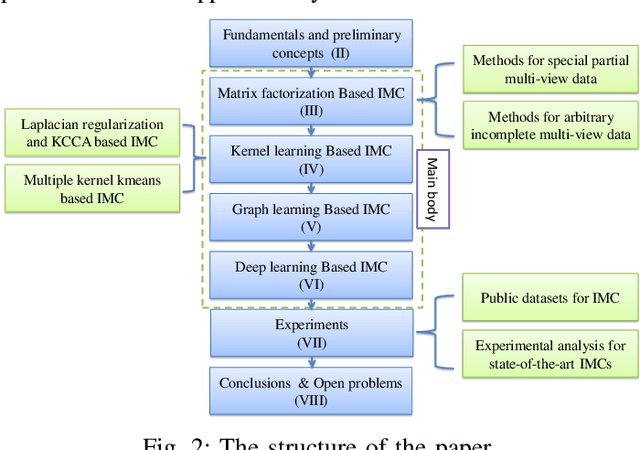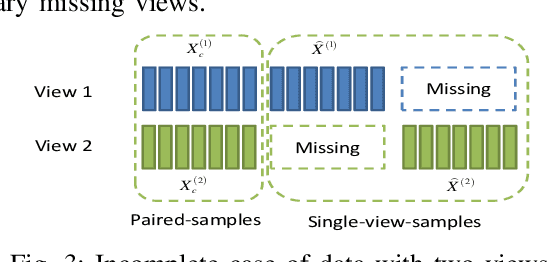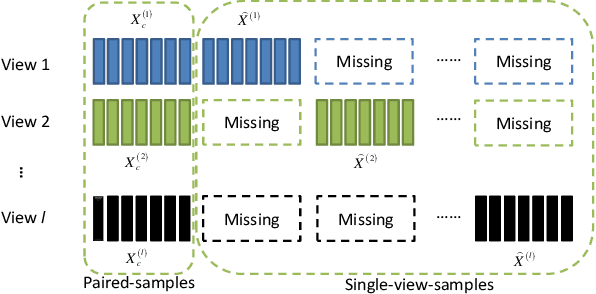A Survey on Incomplete Multi-view Clustering
Paper and Code
Aug 17, 2022



Conventional multi-view clustering seeks to partition data into respective groups based on the assumption that all views are fully observed. However, in practical applications, such as disease diagnosis, multimedia analysis, and recommendation system, it is common to observe that not all views of samples are available in many cases, which leads to the failure of the conventional multi-view clustering methods. Clustering on such incomplete multi-view data is referred to as incomplete multi-view clustering. In view of the promising application prospects, the research of incomplete multi-view clustering has noticeable advances in recent years. However, there is no survey to summarize the current progresses and point out the future research directions. To this end, we review the recent studies of incomplete multi-view clustering. Importantly, we provide some frameworks to unify the corresponding incomplete multi-view clustering methods, and make an in-depth comparative analysis for some representative methods from theoretical and experimental perspectives. Finally, some open problems in the incomplete multi-view clustering field are offered for researchers.
 Add to Chrome
Add to Chrome Add to Firefox
Add to Firefox Add to Edge
Add to Edge